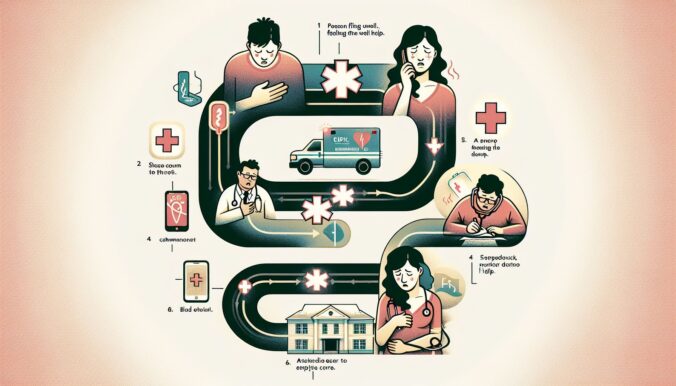When it comes to our health, it is important to know how and where to seek medical help. Whether you are dealing with a minor illness or a more serious medical issue, having a plan in place can make a big difference in your recovery. In this guide, we will provide you with some key tips on how to navigate the healthcare system and get the medical help you need.
Introduction to Seeking Medical Help
The first step in getting medical help is knowing when to seek it. If you are experiencing severe symptoms such as chest pain, difficulty breathing, or sudden weakness, it is important to seek medical attention immediately. For less urgent issues, you can start by contacting your primary care physician. They can assess your symptoms and provide you with guidance on next steps.
Navigating the Healthcare System
Navigating the healthcare system can be confusing, but there are resources available to help you. If you are unsure of where to go for medical help, you can call your insurance provider for a list of in-network healthcare providers. Additionally, many hospitals and healthcare facilities have patient navigators who can assist you in finding the right care for your needs.
Understanding Telemedicine
Telemedicine has become increasingly popular, especially in light of the COVID-19 pandemic. With telemedicine, you can consult with a healthcare provider remotely using video calls or phone calls. This can be a convenient option for non-emergency medical issues or for follow-up appointments. Many insurance providers now offer coverage for telemedicine services, making it an accessible option for many.
Emergency vs. Non-Emergency Care
It is important to understand the difference between emergency and non-emergency care. Emergency care is for life-threatening conditions such as heart attack or stroke, and it should be sought immediately. Non-emergency care, on the other hand, includes issues such as a minor injury or cold symptoms. For non-emergency care, you can visit an urgent care clinic or schedule an appointment with your primary care physician.
Conclusion
Getting the medical help you need is essential for your well-being. By knowing when to seek medical attention, navigating the healthcare system, understanding telemedicine, and distinguishing between emergency and non-emergency care, you can ensure that you receive the care you need in a timely manner. Remember, your health is important, and it is always better to err on the side of caution when it comes to seeking medical help.
